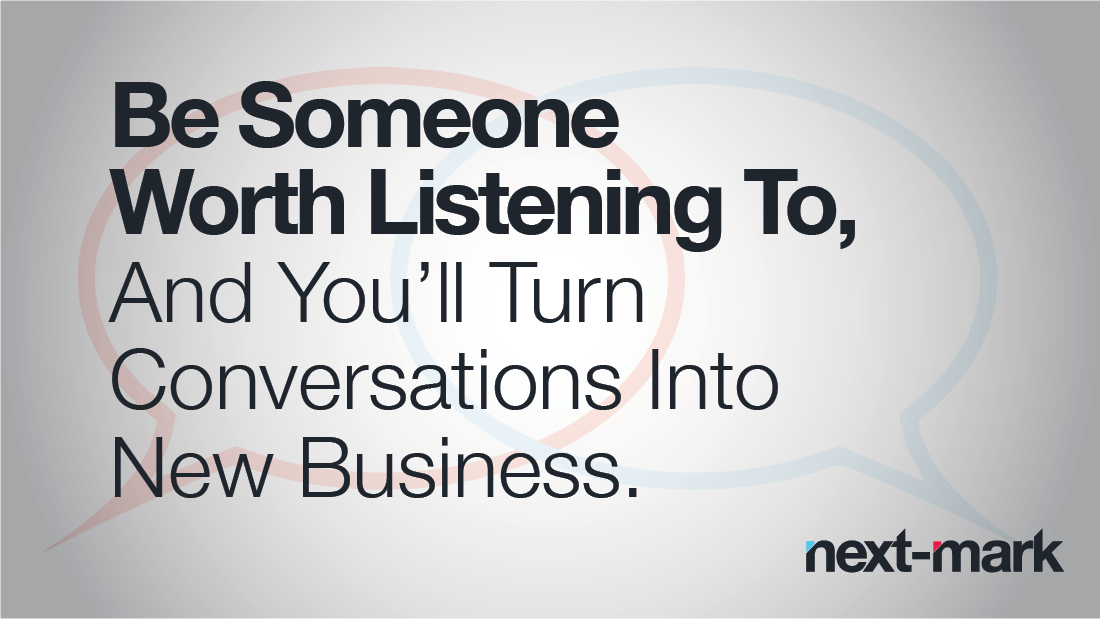
You can’t have a conversation unless you listen and respond accordingly. Otherwise, there’s no context and participants are pretty much talking to themselves. It’s the same with persuasive writing. To do it right, there’s as much ear-to-ground as fingers-to-keyboard involved.
This philosophy is at the heart of our new tagline, Content to Conversation, which actually is less a line than a circle of ongoing listening and conversing – all with the goal of persuading consumers to choose a client’s product or service.
The starting point is our initial engagement, in which we listen to clients to get their perspectives of who they are, their competitive environment and where they want to go. At this stage, we both collaborate and lead, integrating the client’s insights with our marketing knowledge and experience.
We also “listen” to the competition and market, adding to the client conversation and discovering its differentiators – those things that make them stand out.
We then create a plan that includes content designed to create positive change in the way the client and its products and services are perceived. When done correctly, that persuasive content begins a conversation among the client and its customers and potential customers, selling product, building loyalty and creating new champions.
The cycle is ongoing, as companies and consumers change over time.
There are some constants, however, including the basic rules of the persuasive content creation that forms the core of all messaging. These include:
- Never promise what you can’t deliver or defend. (How many “world famous fries” have you eaten in your lifetime?)
- Speak directly to the audience(s) targeted. (Know their needs; don’t guess.)
- Promote trust in the company through specific, fact-based assertions. (“We’re the best,” doesn’t cut it.)
- Provide the occasional “aha,” the “I never thought of that.” (We all love having new information to share with others.)
- Solve problems. (Everyone loves a problem-solver.)
In other words, leave fluff to the cat, and make strong, compelling arguments based on knowledge and supported by logic.
Be someone worth listening to as a company, and you’ll turn conversations into sales.